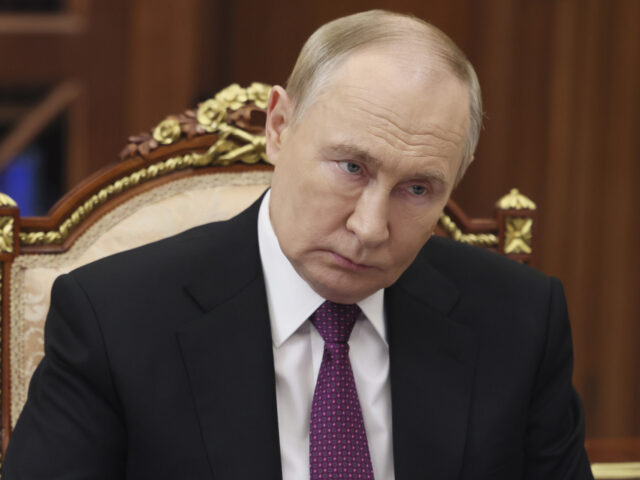The German government has collapsed and is rapidly heading to snap elections in early 2025, but Chancellor Olaf Scholz has picked this moment to reach out to Russian President Vladimir Putin for the first time in two years to ask him to withdraw his troops from Ukraine.
Olaf Scholz, the German Chancellor who leads the so-called progressive coalition ‘traffic light’ government of social democrats, liberals, and greens and who now faces a February snap election after it collapsed, made a rare telephone call to his Russian counterpart on Friday to ask for the war in Ukraine to end.
Per a German government spokesman, the call lasted for an hour and Scholz spent his time on the line with President Putin condemning the Russian war against Ukraine, calling on Moscow to enter negotiations, and urging for the Kremlin to end the conflict by withdrawing their troops. Scholz told Putin Russia had failed to achieve its war aims so it might as well now give up.
The call was the first between the two men since December 2022, nearly two years ago.
German newspaper Die Welt states that in addition to asking Russia to end the war, Scholz also affirmed on behalf of Germany to President Putin the nation’s “unwavering determination” to keep supporting Ukraine for as long as necessary. The timing of the call is conspicuous as it comes just before the G20 summit in Brazil this weekend. Scholz and Putin’s Foreign Minister Sergey Lavrov are attending.
Putin was meant to attend earlier, but he has an outstanding international arrest warrant against him now, significantly reducing his chances of making the trip.
Ukraine reacted badly to the call. President Volodymyr Zelensky called it a “Pandora’s box” moment that could lead to other conversations with the Russian leader. Zelensky said this is “exactly what Putin has wanted for a long time: it is crucial for him to weaken his isolation.”
Russia reacted in turn, with their state media stating the country’s position was essentially unchanged, and President Putin has told Scholz Moscow would enter into negotiations to “settle the conflict” as long as all of its conditions were met. While evidently, these are not acceptable to Ukraine or its Western backers, they nevertheless include Ukraine surrendering parts of its territory to the Russian Federation and then becoming a “non-aligned” and demilitarized state.
While Western leaders having publicly acknowledged phone calls with Russia is now rare, at the beginning of the Russian invasion of Ukraine they were reasonably frequent from some European capitals. German Chancellor Scholz telephoned Putin occasionally, although these became less frequent through 2022 until the last one — until this week — was held that December. France’s Emmanuel Macron kept talking to President Putin long after other leaders had given up, believing he could broker peace.
Macron later regretted not being more hawkish on Russia sooner and eventually transformed into one of Europe’s most vocal supporters of Ukraine’s defensive war. He supported heavier weaponry deliveries and provocative tactics when other NATO leaders cautioned against escalation.
It is also worthy of note that Scholz’s phone call with Putin on Friday, after almost two years of silence, comes in the dying days of his time in power. Scholz had presided over a leftist coalition, but disagreements over money and even concern over the return of U.S. President Donald Trump saw the agreement between the parties crumble last week. In February, Germany will elect a new government, and right-wing parties will overwhelmingly lead in opinion polls.

COMMENTS
Please let us know if you're having issues with commenting.